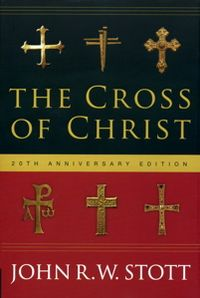 “During the period when lotteries were unhappily allowed to flourish in this country, a gentleman, looking into the window of a lottery office in St. Paul’s Churchyard, discovered to his joy that his ticket had turned up a 10,000 pound prize. Intoxicated with this sudden accession of wealth, he walked round the churchyard, to consider calmly how he should dispose of his fortune. On again, in his circuit, passing the lottery office, he resolved to take another glance at the charming announcement in the window, when, to his dismay, he saw that a new number had been substituted. On inquiry, he found that a wrong number had at first been posted by mistake, and that after all he was not the holder of the prize. His chagrin was now as great as his previous pleasure had been.” — W. Haig Miller’s “Life’s Pleasure Garden”
“During the period when lotteries were unhappily allowed to flourish in this country, a gentleman, looking into the window of a lottery office in St. Paul’s Churchyard, discovered to his joy that his ticket had turned up a 10,000 pound prize. Intoxicated with this sudden accession of wealth, he walked round the churchyard, to consider calmly how he should dispose of his fortune. On again, in his circuit, passing the lottery office, he resolved to take another glance at the charming announcement in the window, when, to his dismay, he saw that a new number had been substituted. On inquiry, he found that a wrong number had at first been posted by mistake, and that after all he was not the holder of the prize. His chagrin was now as great as his previous pleasure had been.” — W. Haig Miller’s “Life’s Pleasure Garden”
When you and I experience a disappointment far more grievious than the failure to win the lottery, what is our anchor? When the sea billows roll, what keeps us from drifting far from the safe refuge of His presence?
The answer is found in what we choose to think about. What we choose to believe.
The Psalmist David wrote, “I believe that I shall look upon the goodness of the LORD in the land of the living! Wait for the LORD; be strong, and let your heart take courage; wait for the LORD!” (Psalm 27:13, 14)
Hebrews 6:19 tells us that hope is “a sure and steadfast anchor of the soul.” It is a certain expectation of future blessing and favor.
When you have lost something precious, perhaps even someone precious, even the most precious relationship you have ever had in this world, just remember, the same Sovereign One who has ordered your events in time is the all wise and Omniscient One too.
As much as a finite mind ever could ever be given access to even a measure of His thoughts and to know what He knows about you and the situation that greatly troubles your heart – if you could look beyond your present disappointment and see things as He does, you would have ordained the events of your life just as He did – you would have chosen what He has chosen for you. This indeed is the supreme comfort of the saints in their trials. God in His providence has ordered all the events of time and though the One who gave might have chosen to taken away, we should always say, “Blessed be the Name of the Lord.”
He is worthy of our trust, even as the tears roll down our faces. He is altogether good. He is altogether gracious. He is Love Himself. He is the Faithful One, steadfast and true.
When the answer to our prayers is simply God telling us “NO,” what we know about God should provoke our trust in Him, even when the only thing our frail and limited understanding would conclude is that the answer should have been “yes.” Our mind screams out, “God if You only knew what I know, You would have chosen something different.” Yet the moment we even voice such a thought, we realise that this thought must be recognized as the most futile and fallacious thoughts imaginable. God knows all we know and a billion more things besides, and He has taken all things into consideration when He ordained all the events your life will ever encounter.
There is no testimony without a test. There is no need for trust when all is understood. Trust in the dark what He revealed to you in the light.
Trust in the Lord, wait patiently for Him. The Lord has His plan for you, precious child of God, and all His plans for you are good.
We may lose our gold, but we can never lose our God. The expectation of the righteous is from the Lord, and nothing that comes from him shall ever fail.
C. H. Spurgeon once recalled, “I knew one who had made an idol of his daughter, and when she sickened and died, he was exceedingly rebellious, and the result was that he died himself. Expectations which hang upon the frail tenure of a human life may fill our cup with wormwood if we indulge them. Could this father have owned the Lord’s hand in the removal of his child, and had he beforehand moderated his expectations concerning her, he might have lived happily with the rest of his family, and have been an example of holy patience.”
What is your idol? What vain thing do you allow to come before yourself and your God? Is it a certain job? A certain place to live? Is it wealth? Health? A relationship? Companionship? Is the idol a “who” rather than a ‘what”?
L. B. Brown once wrote, “Who has not muttered “Marah” over some well in the desert which he strained himself to reach, and found to be bitterness? Have you found no salt waters where you thought to find sweetness and joy? Love, beauty, the world’s bright throngs, marriage, home, the things which once wooed you, and promised to slake the thirst of your soul for happiness, are they all Elims, sweet springs and palms? Oh, what fierce murmurings of “Marah” have I heard from hearts wrung with anguish, from souls withered and blasted by a too fond confidence in anything or any being but God! Believe it, no man, with a man’s heart in him, gets far on his wilderness way without some bitter soul-searching disappointment; happy is he who is brave enough to push on to another stage of the journey, and rest in Elim, where there are twelve springs, living springs of water, and threescore and ten palm trees.”
… disappointments in time are often the means of preventing disappointments in eternity. — William Jay
Rise up O precious one. Yes, rise up from what you think are the ashes of your dreams. Remember Christ. Fix your thoughts on Him. He has never let you down. He has never left you nor will He ever do so. Remember His true and certain love for you. Let all the vain things that have charmed you most, now be surrendered to His Providential hand. Yes, rise up even now and sing with me:
When I survey the wondrous cross
On which the Prince of glory died,
My richest gain I count but loss,
And pour contempt on all my pride.
Forbid it, Lord, that I should boast,
Save in the death of Christ my God!
All the vain things that charm me most,
I sacrifice them to His blood.
See from His head, His hands, His feet,
Sorrow and love flow mingled down!
Did e’er such love and sorrow meet,
Or thorns compose so rich a crown?
Were the whole realm of nature mine,
That were an offering far too small;
Love so amazing, so divine,
Demands my soul, my life, my all.

 For the past several weeks, Tim Challies has been encouraging visitors to his
For the past several weeks, Tim Challies has been encouraging visitors to his